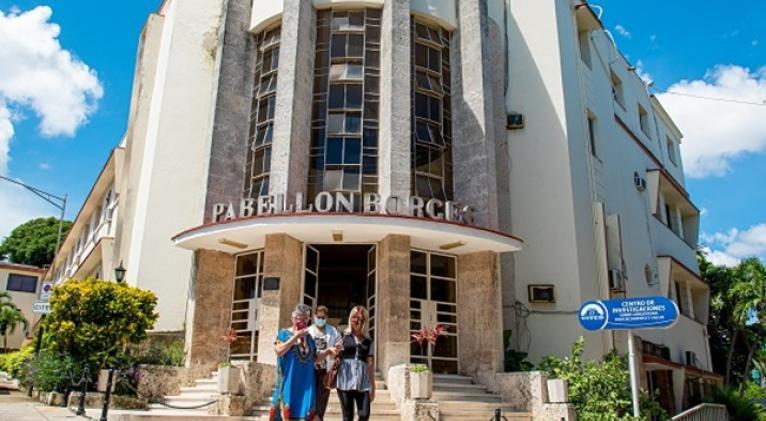 Guantanamo.- Cuba has one of the most aging populations in the world. In fact, the segment of adults aged 60 or older is the only one that maintained sustained growth in 2024.
Guantanamo.- Cuba has one of the most aging populations in the world. In fact, the segment of adults aged 60 or older is the only one that maintained sustained growth in 2024.
According to the National Office of Statistics and Information, approximately 24.4% of Cubans fall within this age group —meaning one-quarter of the island’s total population (9,748,532 inhabitants).
This demographic shift presents significant challenges for the state, the national healthcare system, and its institutions. For decades, policies and strategies have been designed to address the quality of life for this population group.
A prime example of these efforts is the Center for Research on Longevity, Aging, and Health (Cited). Inaugurated 33 years ago —on May 7, 1992, by Commander in Chief Fidel Castro— it has a strong track record in ensuring that older adults not only live longer but also healthier lives.
With recognized leadership in providing knowledge and assistance, Cited remains a vital reflection of its founding principles. Throughout its existence, it has consistently strengthened medical activity in the fields of science, technological innovation, and scientific-technical development.
Driven by its mission to train professionals in this area, the staff works to expand and diversify care services. As Dr. Lilliam Rodríguez, Director of the Center and a specialist in Public Health and Aging with a Master’s degree, explained in a previous interview, care encompasses multiple disciplines: geriatricians, gerontologists, nursing professionals, psychologists, and all specialists involved in elderly care.
“This is what we call the ‘geriatrization’ of services,” said Dr. Rodríguez, a first-degree specialist in Comprehensive General Medicine and Geriatrics and Gerontology.
Another key aspect, noted the professor and researcher, lies in establishing important collaborations with various research centers to develop clinical trials (in some cases) and projects on dementia and caregiver training programs (in others).
Similarly, alongside experts in education, demography, and economics, Cited promotes multidisciplinary studies on longevity, aging, and health programs.
Old Age as a Treasure
In 2017, Cited participated in the National Survey on Population Aging. Among the findings was that 80.6% of older adults suffered from at least one chronic disease.
Based on this reality, the institution revamped and diversified its consultations through comprehensive geriatric assessments, covering both outpatient and inpatient care.
Clinical practice addresses cognitive decline, Alzheimer’s, frailty, incontinence, depression, gynecological issues, immobility, post-fall conditions, and chronic diseases, among other disorders.
To treat these conditions, Cited relies not only on highly qualified specialists and technicians but also on modern support technology that enhances diagnostics.
The center even has a physical performance laboratory that conducts precise assessments of patients’ functional capacity, as well as bone densitometry equipment to diagnose osteoporosis or osteopenia (a bone mass and density condition similar to osteoporosis but less severe).
In line with Cuba’s complex demographic dynamics —where it is estimated that by 2030, adults aged 60 and over will make up 30% of the population— Cited is developing research lines focused on factors that promote prolonged longevity while maintaining a healthy lifestyle.
All of this translates into better opportunities and lower costs for older adults and their families.
Undoubtedly, in its 33 years of valuable service, the Center for Research on Longevity, Aging, and Health has successfully built a robust foundation of human and care resources.
Through research, advisory services, results, best practices, lessons learned, and the development of treatment protocols, Cited underscores the importance of understanding the intrinsic value of aging with better health.
Translated by Sergio A. Paneque Díaz / CubaSí Translation Staff